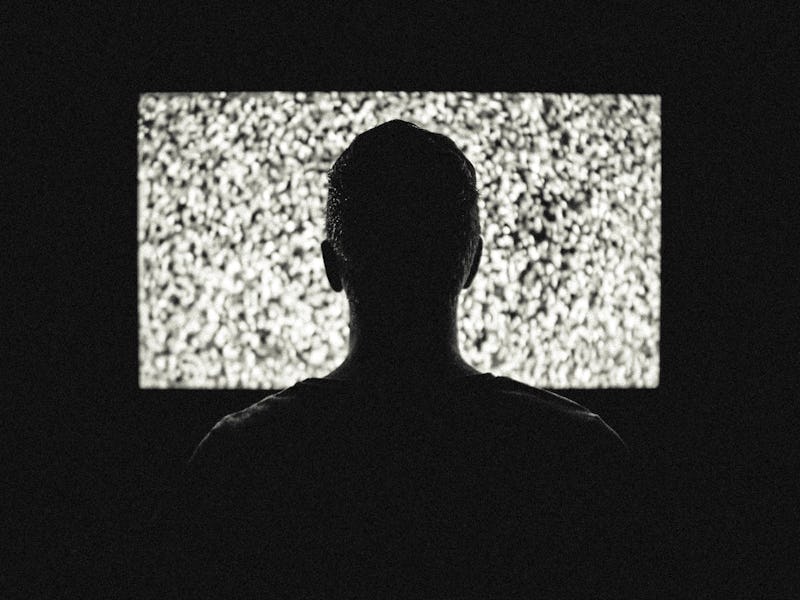Owning a TV Influences How Often You Have Sex, Say Economists
"Some people might actually prefer television."

Some might consider the first season of Iron Fist a useful form of contraception. Though season two was better, the authors of a working paper released by the National Bureau of Economic Research suggest that even the most exciting TV shows could dampen your sex life. If their results withstand further investigation, the larger implications start to look like something straight out of a Black Mirror episode.
Co-authored by Adrienne Lucas, Ph.D., an assistant professor of economics at the University of Delaware, and Nicholas Wilson, Ph.D., an assistant professor at Reed College, this paper compiles Demographic and Health Surveys data on four million people to show that TV owners are six percent less likely to have had sex in the past week. Lucas tells Inverse that she actually expected TV to be a bit more of a buzzkill that her results showed, but still, this effect reveals a lot about how we prefer to relax an age of endless content.
“People have a pot of leisure time that they can allocate to things like having sex, watching television or doing other activities,” Lucas says. “So if you think about our model, having sex and watching television are potentially substitutes in the allocation of your leisure time.”
TV ownership might be killing your sex life. But in the US (not included in this recent study) TV ownership is declining.
There are, of course, some caveats. Lucas’s results show only a correlation, not a causal effect, and importantly, the data were collected across low-income countries, so there were no respondents from places like the US, western Europe or Canada in the results. Also, notably, TV ownership doesn’t necessarily correlate to the amount of content a person consumes because there are tons of ways to watch shows that don’t involve an old-school TV set.
These caveats aside, it’s still worth investigating why the calculated decrease in sex-having exists among TV owners. Some of this might just come down to a “time cost,” Lucas says. The minutes you spend bingeing This is Us, in other words, are minutes you are probably not having sex or going somewhere to seek it out.
But some of the effect comes down to availability, says Lucas, and even — in a Black Mirror-esque extrapolation of the findings — whether you prefer digital media over personal intimacy.
“We think the extent to which people divide their leisure time between sex and TV is going to be both the availability of both sex and TV but also their underlying preferences,” she says. “It may be that some people have a television but they really prefer sex so it doesn’t matter to them, it may be that some people are indifferent, but some people might actually prefer television.”
Preference is nearly impossible to capture at this level of data. But whether people tend to prefer the company of digital media to the company of one another in general is still something researchers are looking into. Lucas says it might be five or ten years before we have good enough data to understand this more, but her results are an early, thought-provoking start.